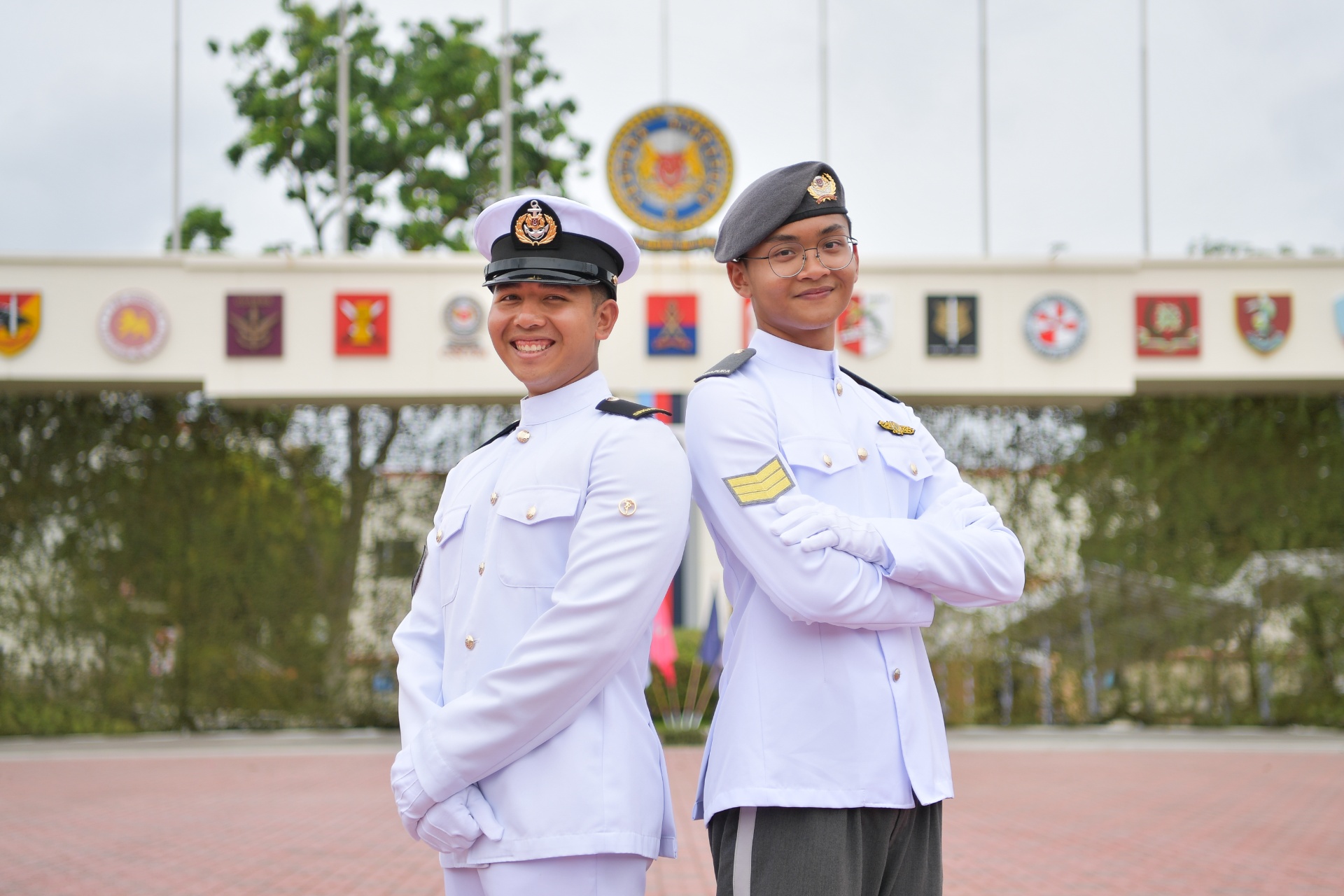PEOPLE
EX-NAVAL OFFICER TRAINS YOUTHS TO BE CONFIDENT
26 Feb 2020
He's led hundreds as the Commanding Officer of three ships throughout his career. Now, he is on the Reservist on Voluntary Extended Reserve Scheme (ROVERS) and conducts training camps for youths.
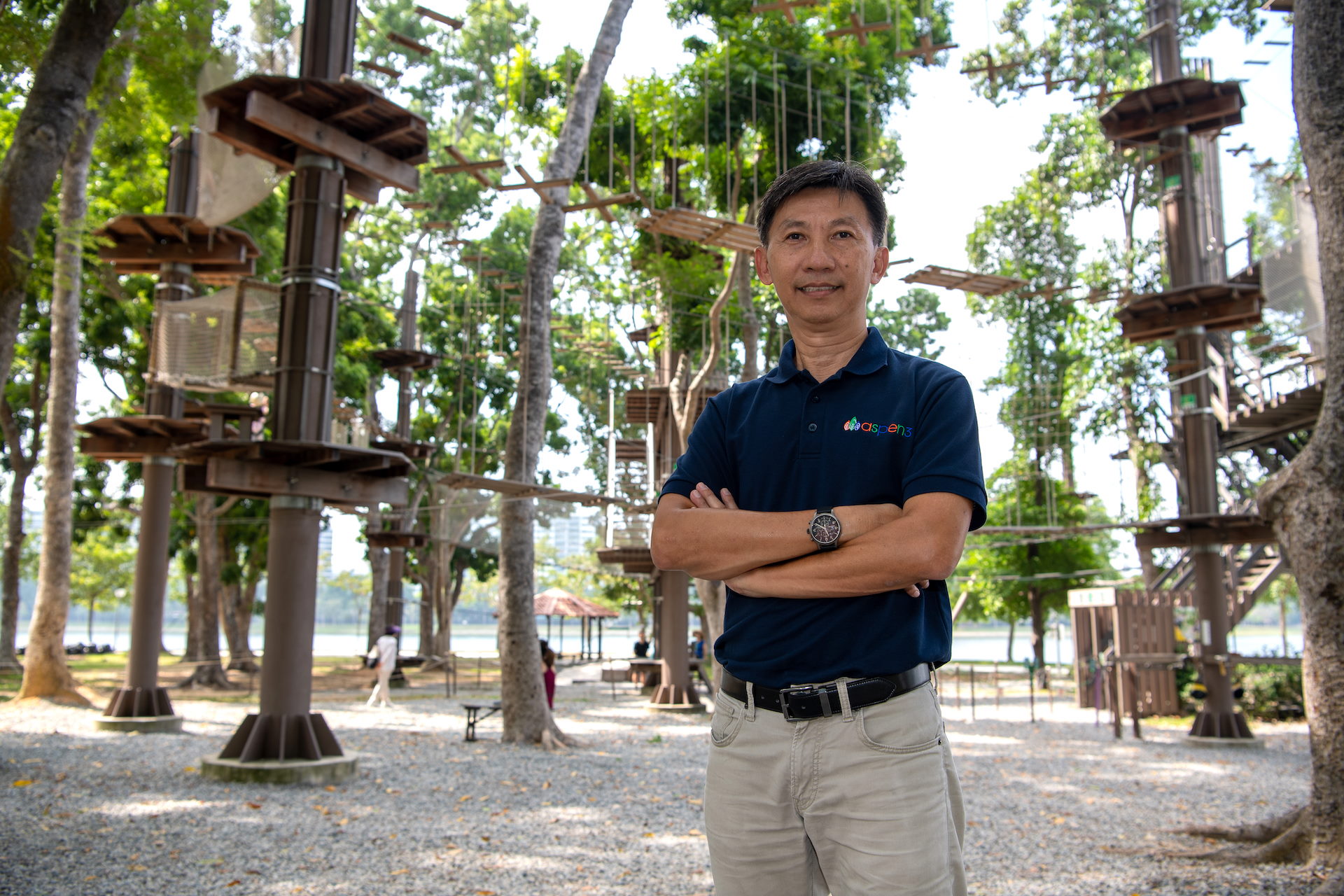

With 33 years of military experience under his belt, Major (MAJ) (NS) Yap Chee Eng has had a long and memorable career in the Republic of Singapore Navy.
The naval officer led a ship that sent relief aid to victims of the 2004 Boxing Day tsunami in Indonesia; was involved in search operations following the SilkAir MI185 incident; and has overseen scores of overseas exercises.
Since leaving as a Regular in 2005, the Operationally Ready National Serviceman (NSman) took command of one of the ships of the 192/193 Squadron of Civil Resource vessels - where he continues to serve under ROVERS today.
In his time, he has led his crew to win two Best Ship Awards (RSS Bedok and RSS Endeavour) and two Best NSmen Team awards.
The 55-year-old continues to train young people: he started his own training company, Aspen 3, that conducts leadership programmes and adventure camps for youths.
The company has held programmes for the National University of Singapore, Nanyang Technological University and other tertiary institutions and secondary schools.
The father-of-three tells why he's motivated to continue serving the nation.
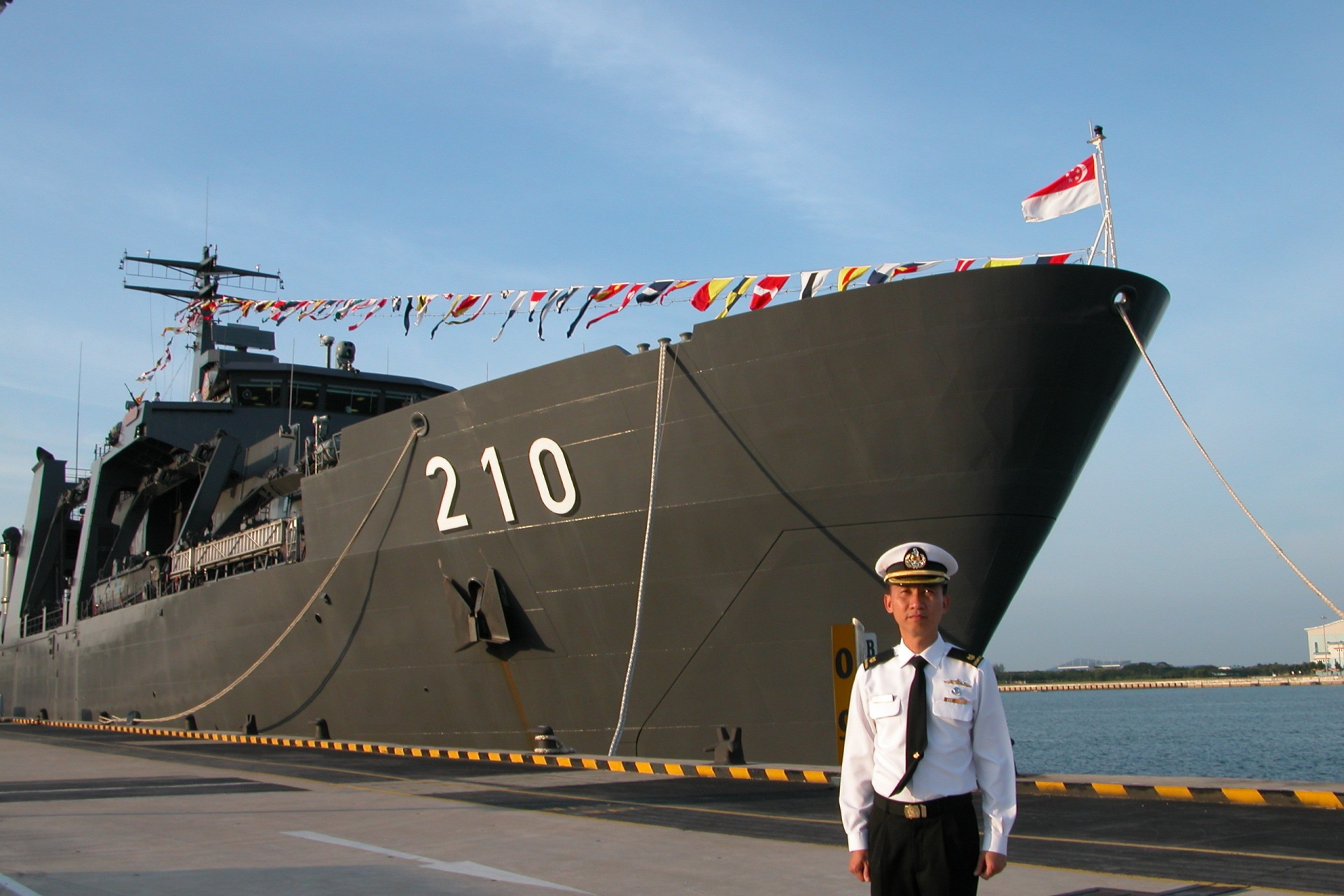
Why did you sign on with the Navy?
Singapore was in a recession in 1986. My parents were hawkers and had to close their stall. I didn't have to think twice after graduating from Singapore Polytechnic (in Marine Engineering) - I signed on to start earning for the family.
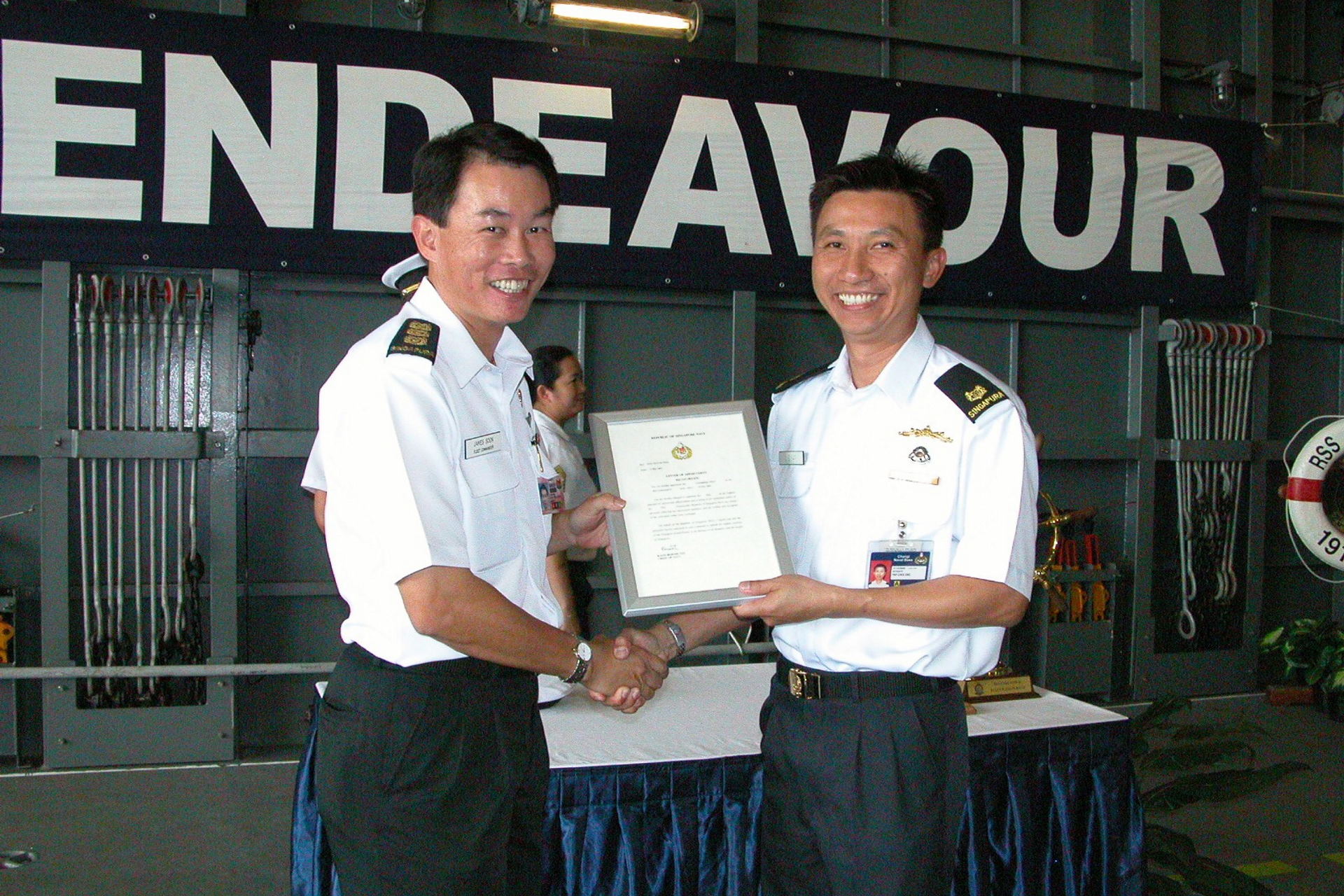
What was your proudest moment in the Navy?
It's always a proud moment every time I assume command. I took on my first Commanding Officer (CO) appointment of Coastal Patrol Craft RSS Swift Centurion when I was pretty young, at 30!
When I became CO of RSS Endeavour, I felt very privileged and honoured. It's the biggest ship in the Navy and I was given the opportunity to lead it.
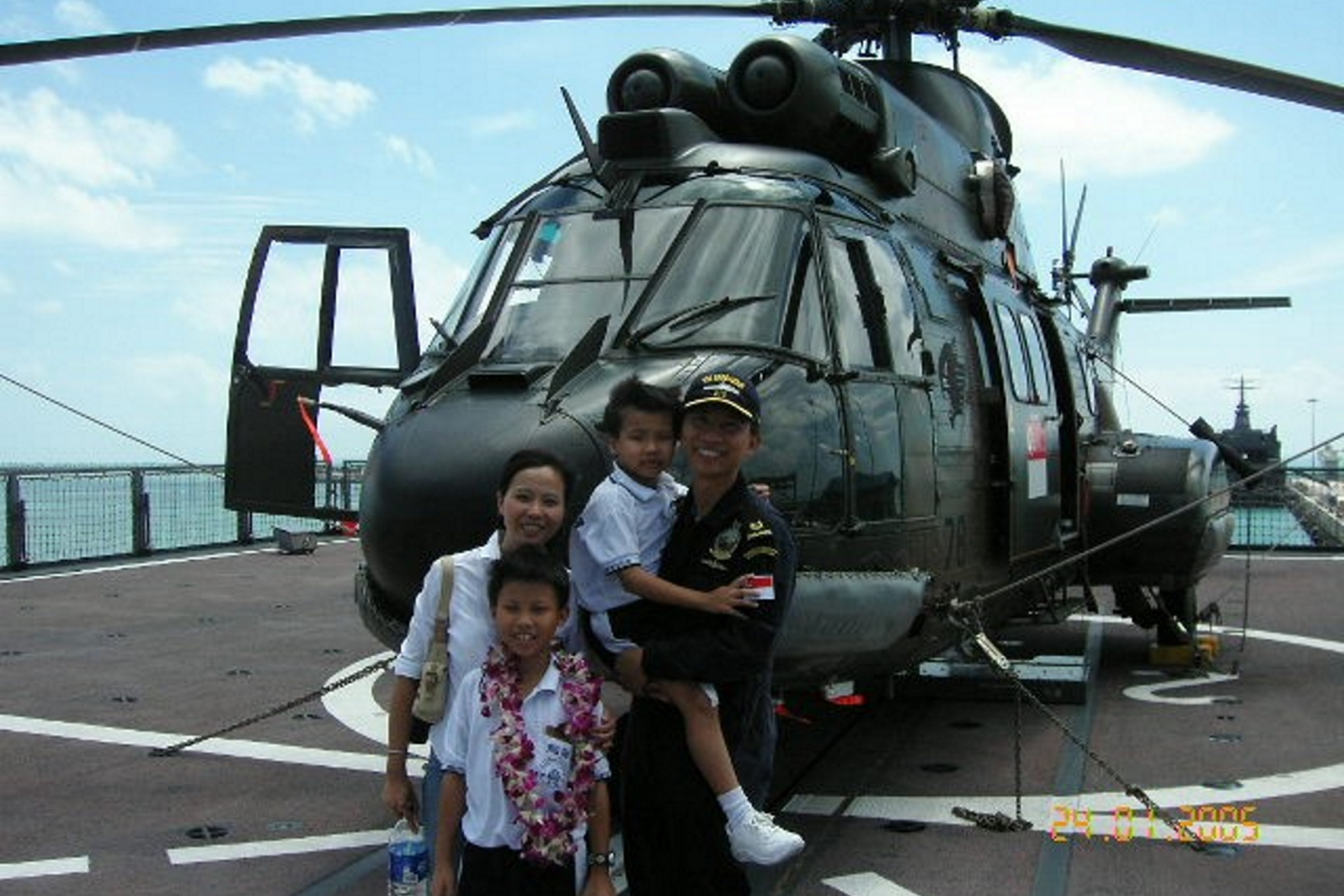
You also led RSS Endeavour to support aid efforts after the Boxing Day tsunami.
We were the last of three ships to go. I think it was the first time that a Navy ship was carrying over 60 civilians on board…and we had to take care and watch over them, along with the donated relief supplies.
My crew and I all felt the same: we were glad to have had the opportunity to help out, no matter how big or small (the effort was).
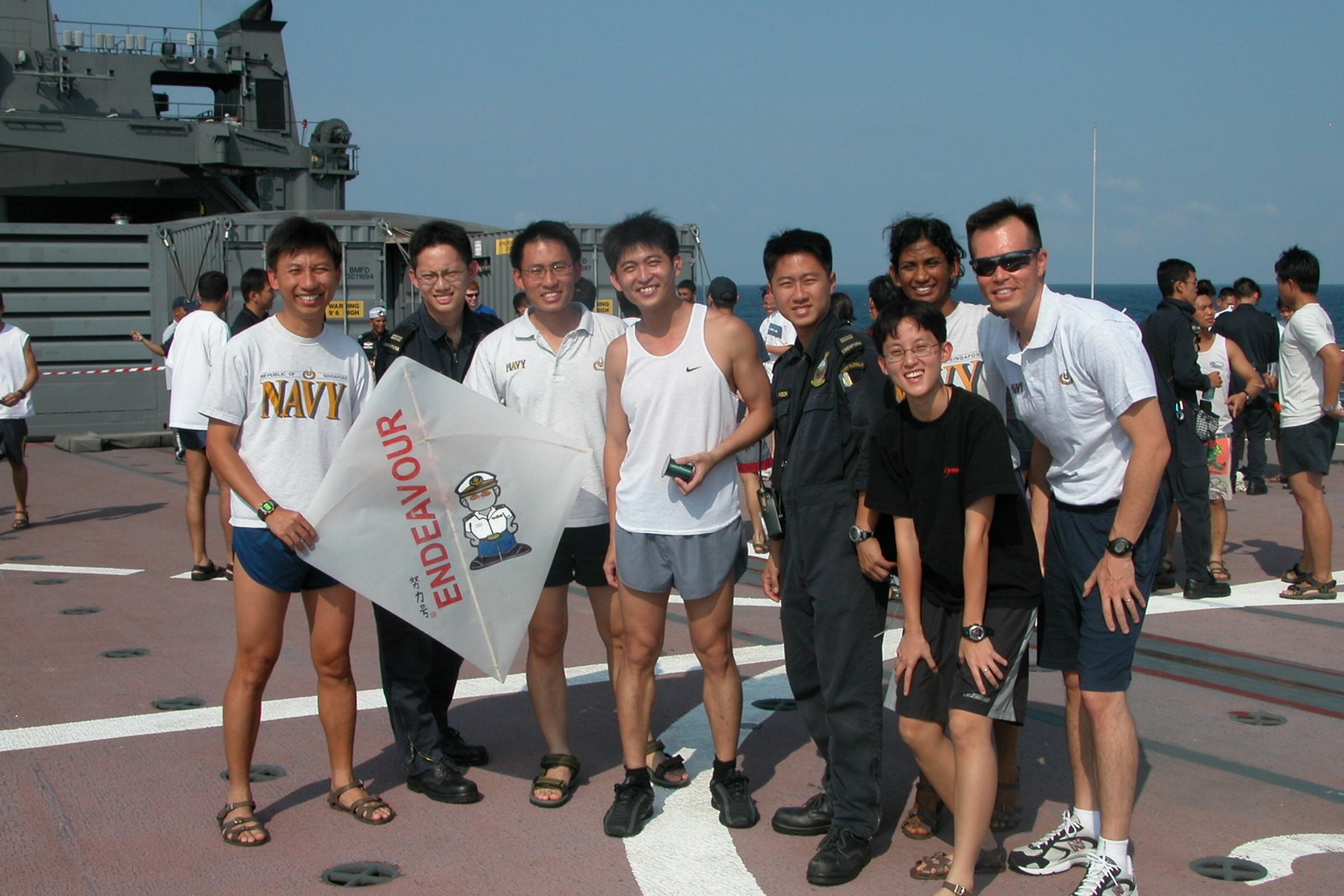
Why start a training company?
When I left the Navy at 40, I knew I wanted to do training-related work.
Being on an operational platform, the young naval officers would see us (commanders) more than they saw their own families - it was the same for me; I was once activated on my birthday and my family continued my birthday party without me - but I enjoyed seeing the young officers grow in the Navy and into more confident people. It was a very rewarding feeling.
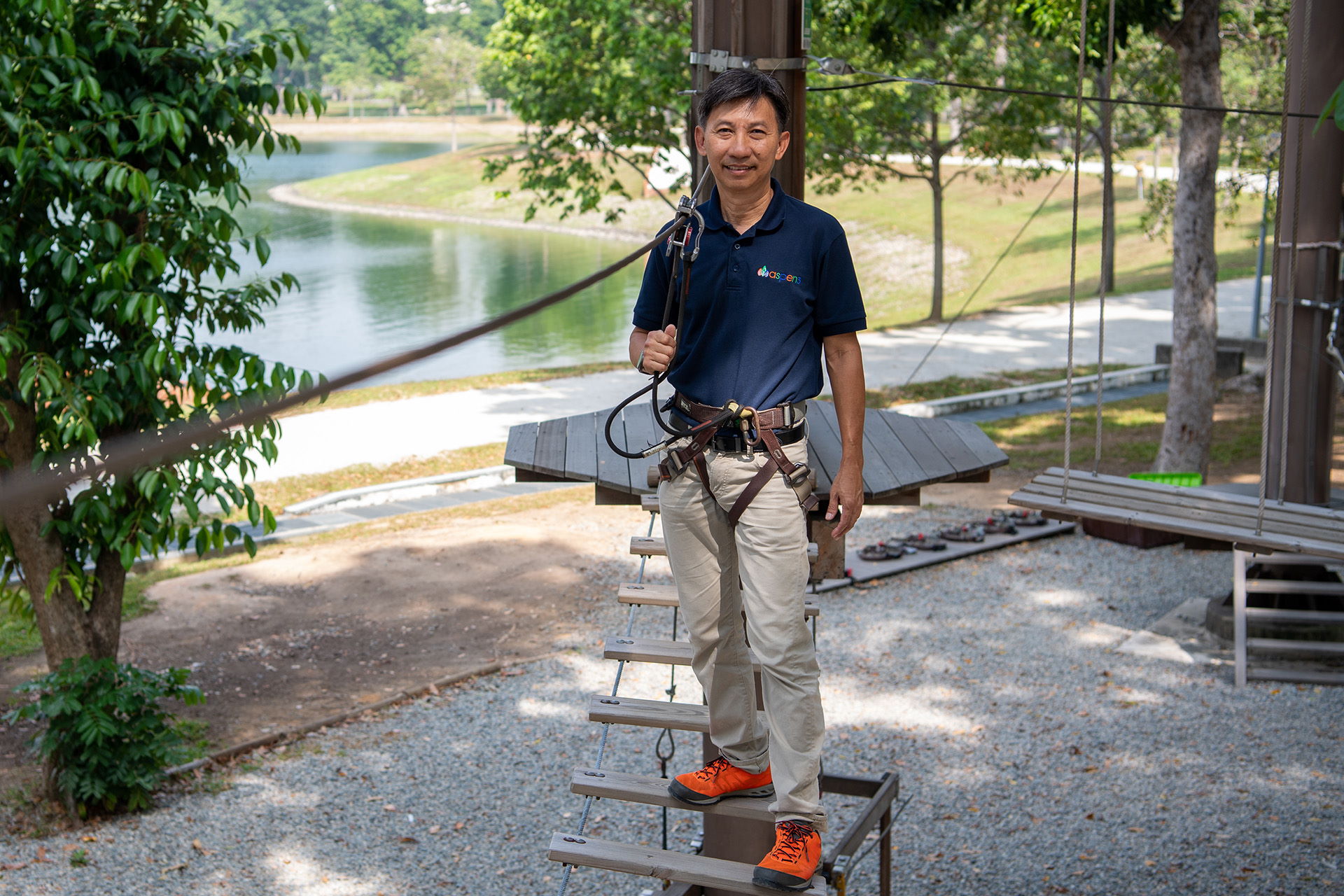
So, how do you train the youths who go through your programmes?
With the high elements course, we put them in an environment outside of their comfort zones in order to push their boundaries and build character.
Different schools we work with also want their students to pick up various tangible skillsets - like empathetic listening to facilitate discussions - so we plan our programmes according to their needs.
Why do you continue to serve in the military till today?
I still love the Navy. I told my superiors: if you still need my service, I will continue to contribute.
That's why I have stayed on as the CO of my team, the Civil Resource ships, from 2005 (when I left the Service) till today.
ALSO READ IN PEOPLE
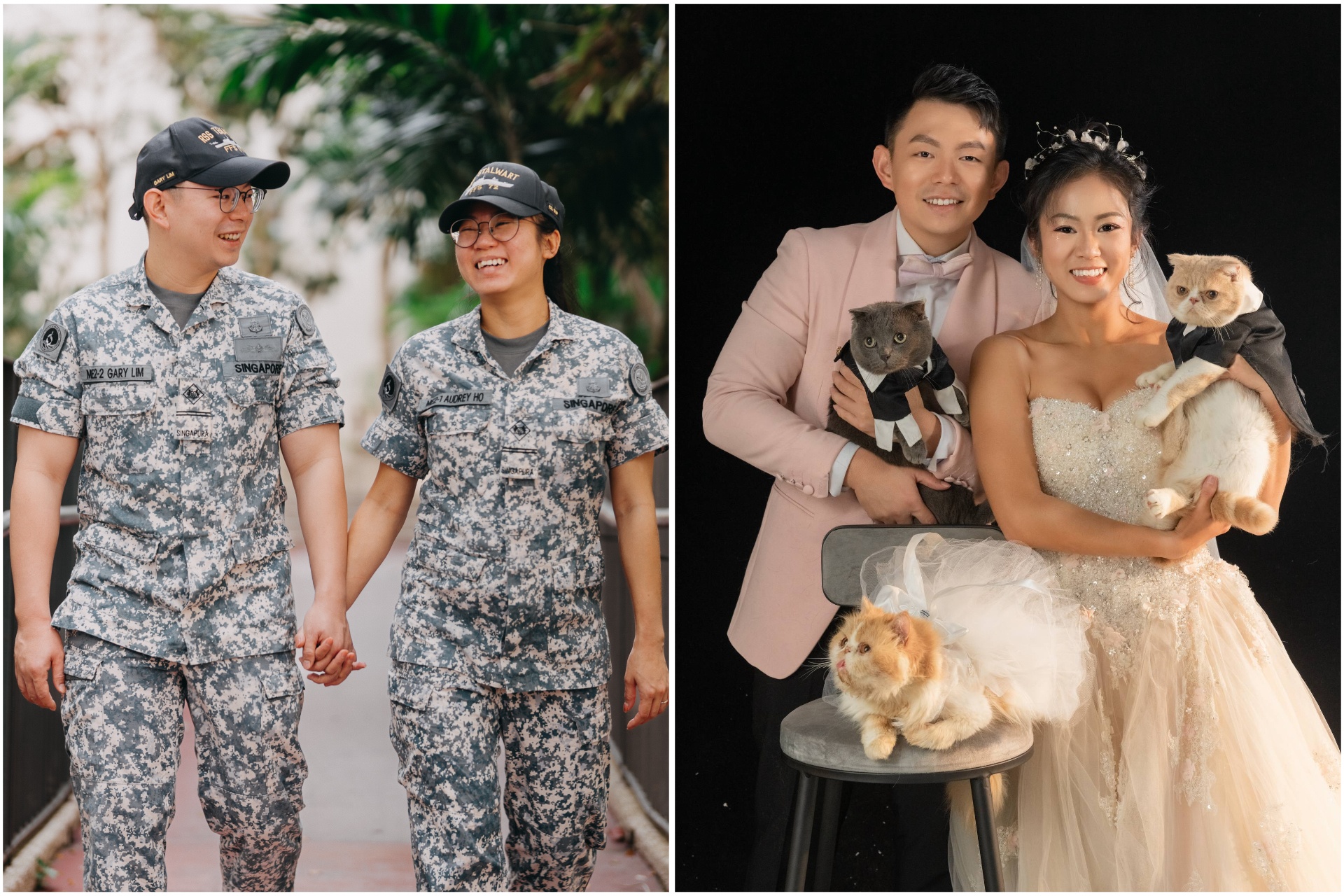
When two hearts set sail together
13 Feb 2026
Naval engineers ME2 Gary Lim and ME2 Audrey Ho share how they navigate love, military service, and (soon) parenthood.
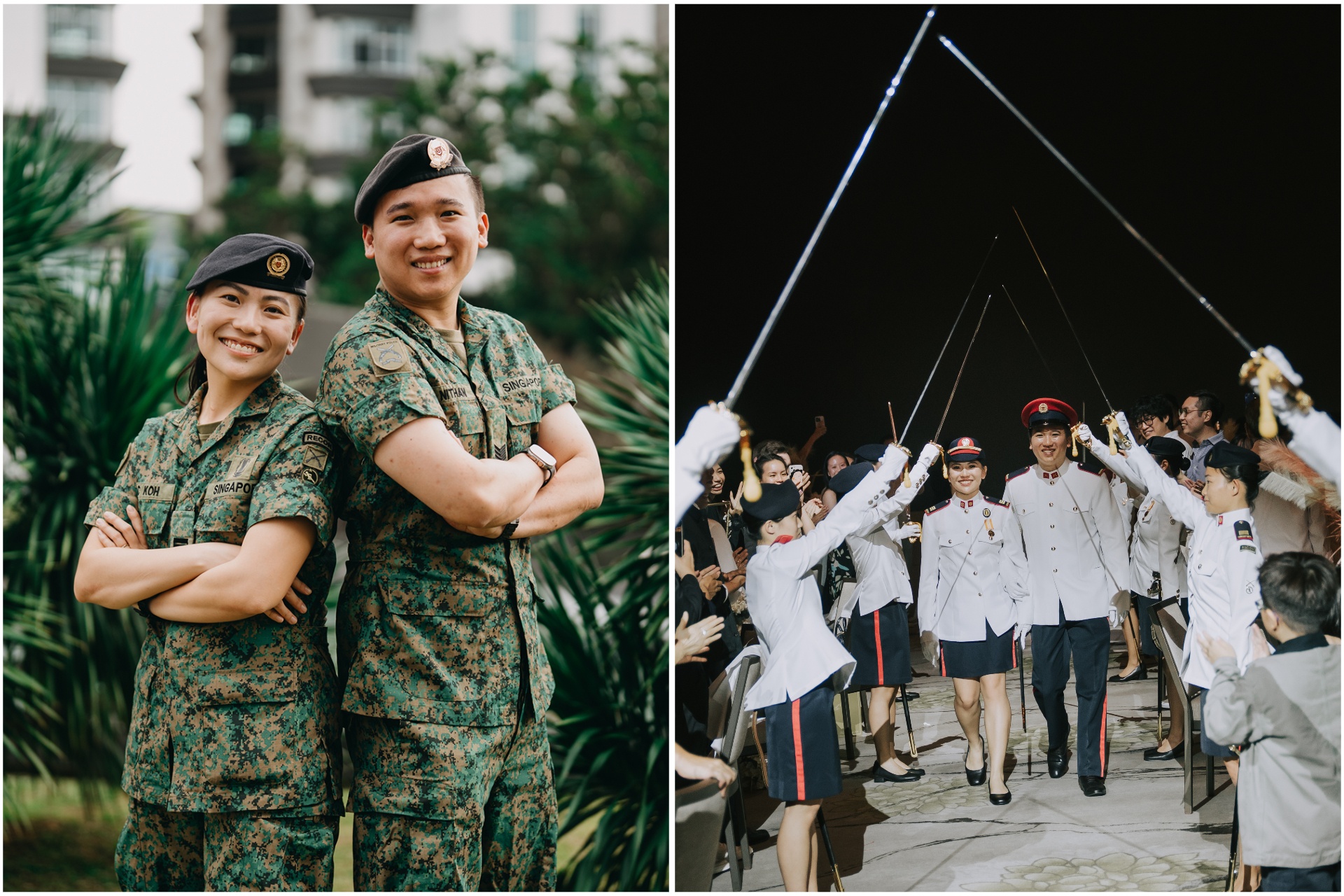
I’ve always got your back
11 Feb 2026
She’s an Army officer, and he’s the (NS)man supporting her dreams. CPT Koh Xinci and 3SG (NS) Nitro Chan share their love story with us – including their unique wedding!
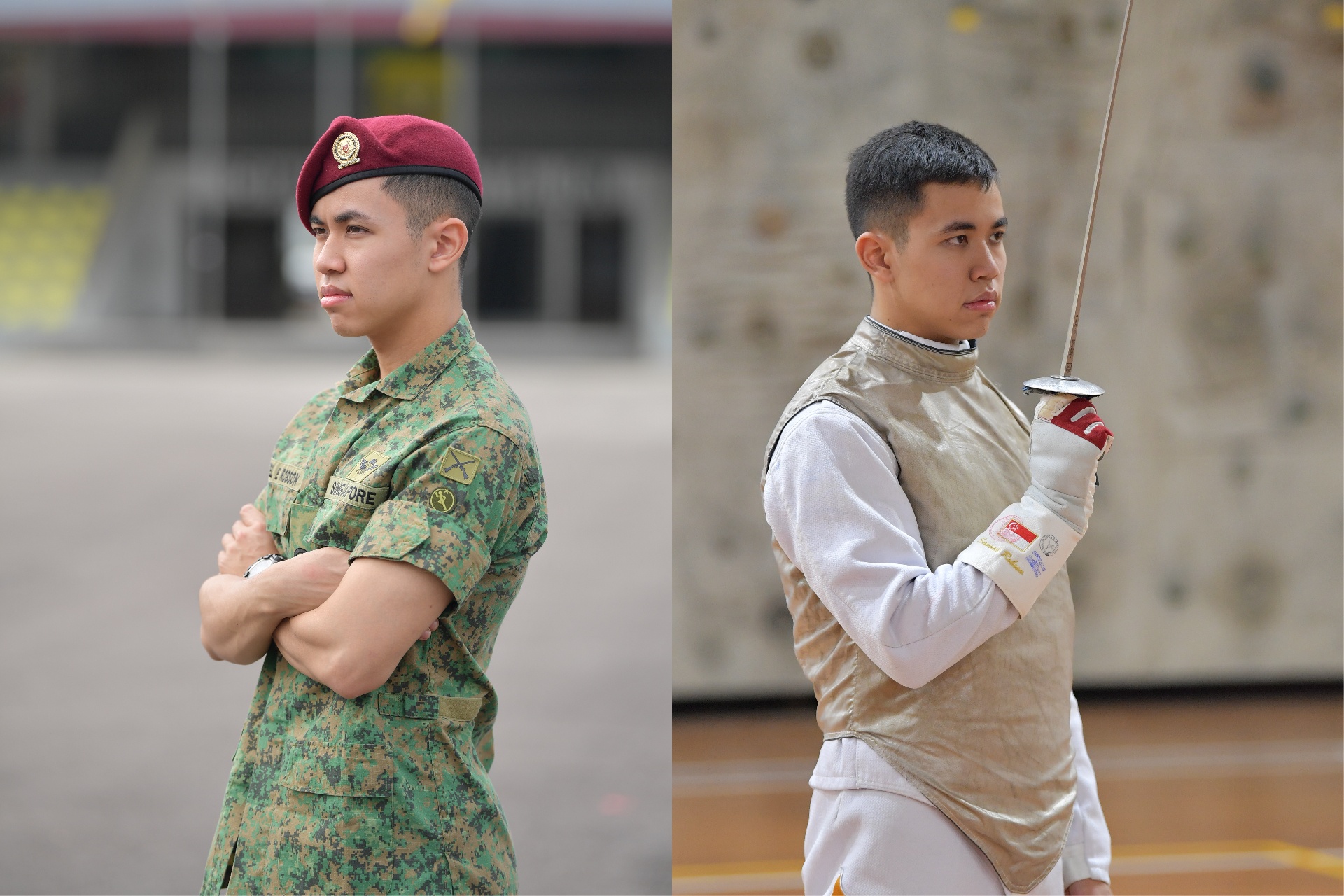
He’s an NSF Commando & medal-winning fencer
28 Jan 2026
His team won gold at the SEA Games 2025, and he hopes to represent Singapore in more competitions to come. Meet fencer CPL Samuel Elijah Robson, who is serving as a Commando during his full-time NS.


